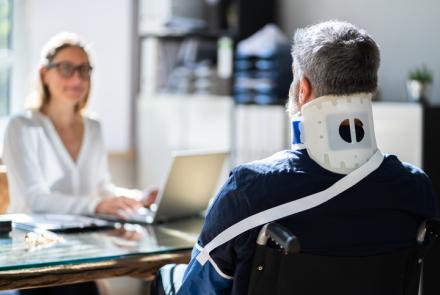
Once you have decided to hire a personal injury attorney to help you pursue your personal injury claims, it can be confusing to find one who is an experienced and capable attorney and can best serve your interests. There are many attorneys out there, and much is at stake.
Read on to learn how to find the right lawyer for your case.
Finding a Personal Injury Attorney
Any attorney you hire should be experienced, competent and committed to pursuing your claims and objectives vigorously. Ask friends, relatives, co-workers and other folks you know and trust if they know of a reputable attorney, or if they have successfully worked with one in the past. Your local bar association can also provide referrals.
Once you Have a Few Names, What Next?
Browse the firm’s website and determine where the firm practices, the size of the firm, the experience of the attorneys or staff, how long the firm has been practicing personal injury law, whether the firm specializes in personal injury law, and the firm’s record of success.
Consider the firm’s achievements on cases with similarities to yours.
When evaluating attorneys in your area, look for awards and recognition such as Super Lawyers, Million Dollar Advocates Forum, Multi-Million Dollar Advocates and an AV rating from Matindale-Hubbel.
Talk to the Law Firm
Call the firm and ask to speak to the attorney or their assistant. This is preferred over email communication. Be prepared to provide a summary of your claim including the date and location of the incident, a brief description of how the incident took place, and the nature of the injuries sustained. The law firm should be responsive and promptly put you in contact with an attorney or an assistant to the attorney. After an exchange of the basic information, ask questions such as:
1. Does the firm have experience with this type of case? Ask them to share examples.
2. How long has the firm been practicing personal injury law? Look for at least 15 years.
3. Which attorney will handle my case? There should be a specific attorney assigned to the case.
4. Does the firm have the financial resources to handle my case? Personal injury cases often require the firm to pay upfront costs for retaining experts, investigating liability issues, investigating insurance issues, ordering police reports and ordering medical records.
5. Will the firm be handling the litigation if the case does not settle before the statute of limitations and a lawsuit is required? There is an increase in the amount of work and the costs involved in personal injury cases after the case proceeds to litigation and courts get involved. Some firms may not have the resources to handle the case at this point. Make sure you understand and are comfortable with how the firm will proceed should litigation be required.
6. Does the firm work on a contingency basis, and will the initial consultation be free? Standard practice is to work on a contingency basis and provide a free initial consultation.
7. Does the firm have a written fee agreement that complies with the State Bar rules? The firm should be compliant with the State Bar rules and have a written fee agreement.
8. Does the firm have legal malpractice insurance? The answer should be yes.
Big Firm or Small
A small firm including sole practitioners may offer certain advantages, but make sure the attorney has the time and resources to properly handle your case. This includes the ability to advance case costs, which can be quite substantial. Larger firms may have more resources, but in this environment it can sometimes feel like your case is not a top priority. If the attorney seems too busy to make your case a priority, look elsewhere.
Location of the Firm
Ideally the firm will be conveniently located so you have the option to meet the attorney in-person. If the firm is able to work remotely it may not be necessary for you to attend in-person meetings. However, if a lawsuit is required, your in-person attendance at meetings at the firm or medical examinations by doctors near the firm will likely be important at some point.
Consider whether the firm is located near the area where the incident occurred as well. The firm may need to interview witnesses and inspect the scene of the incident, which may require more resources if the firm is not nearby.
What is My Case Worth?
It is worth mentioning this is NOT one of the questions we recommend be asked. An attorney cannot guarantee any case result and you should beware of promises or case valuations at this stage of the proceedings. It is only after a full and complete case workup that an attorney can begin to discuss case value intelligently.
When an attorney tries to “sell” you on how much compensation they are going to obtain, we recommend looking elsewhere for your lawyer. Instead, an experienced confident lawyer will focus on the process, specifically the damages the law allows, and how the lawyer will go about obtaining maximum legal compensation for the client in their case.
Trust and Confidence
Your attorney will be your trusted advisor and you will be collaborating to obtain the best possible outcome. You will have to make important decisions that could impact you and your family for years to come and this is your opportunity to get it right. The attorney you select should give you a sense of trust and confidence not only in their ability, but their commitment to your case.
